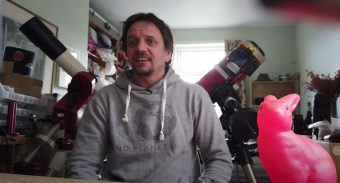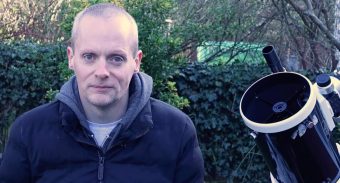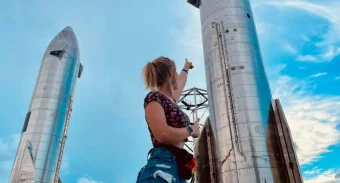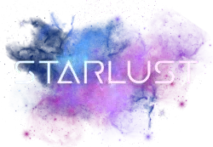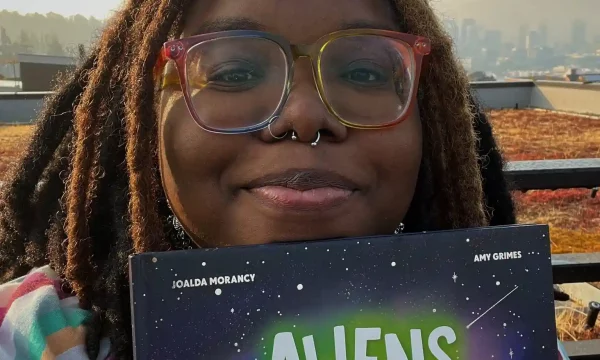
An Interview with Aerospace Engineer Joalda Morancy
Last Updated: November 9, 2023
Joalda Morancy is a multifaceted individual with a strong passion for space exploration. Currently, she works as an Aerospace Engineer at Blue Origin, a company that aims to build a permanent human presence on the Moon. Prior to this, she graduated from the University of Chicago with a degree in Astrophysics.
In addition to her work in the aerospace industry, Joalda is also a science communicator and author. She has written a children’s book titled “Aliens: Join the Scientists Searching Space for Extraterrestrial Life” which was published by Neon Squid, a Macmillan publisher.
Could you talk us through your current job role? Your day-to-day? How cool is it to be a lunar lander engineer?
Yes! Currently, I am an Aerospace Systems Engineer at Blue Origin working in our Lunar Transportation unit. I work both on our Pathfinder lunar lander vehicles and our recently awarded NASA-contracted lunar lander.
I specifically focus on avionics integration and testing, working to make sure our avionics boxes and electronics work together in an integrated environment and can successfully meet the requirements we have for our mission. So on an average day (though most can look different), I can be integrating hardware into our lab, writing up test plans and preparing for test campaigns, debugging software, and more.
Even though I’ve been in the position for under a year, it’s been so awesome to work on fast-paced projects that’ll have real impacts so soon. In a way, working on these lunar landers feels like the Apollo missions in a way as we’re trying to achieve such an ambitious goal in a short time.
Nonetheless, I’m very thankful to have the job I have. I’ve learned so much already and can’t wait to see where I am a year from now!
What are the most challenging parts of your job and how did you overcome them?
For avionics integration and test, you’re tasked with understanding all the electrical interfaces across the entire vehicle and pretty much understanding the safe conditions set for the vehicle during the entire mission profile.
During our testing campaigns, we have to run various mission scenarios where we’ll monitor telemetry and send certain commands, meaning a deep understanding of all the different vehicle modes is pretty crucial. I think it’s a super exciting position to be in, especially since I am a sucker for knowledge and understanding all the bits and pieces of our vehicle.
Though at the same time, it is super tough since, believe it or not, lunar landers are complex systems. Overcoming the firehose of information has been headache-inducing, but I’ve been able to rely on my peers and all the subject matter experts on our team for knowledge and advice, which I wholeheartedly appreciate.
After all, it is a team effort!
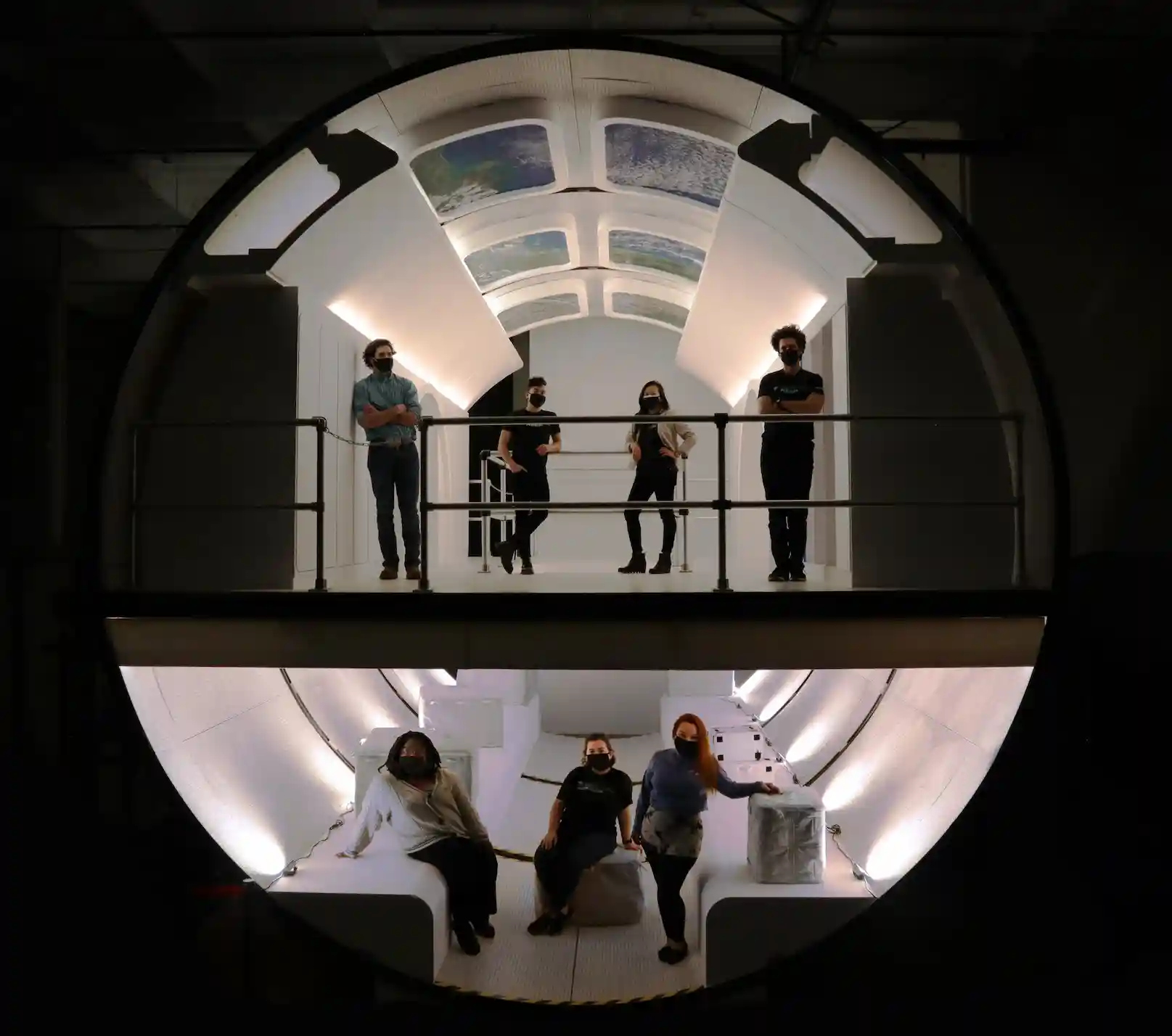
What was the educational path that led you to become a lunar lander engineer?
I think my current path is a bit untraditional, as I graduated from university in 2022 with not an engineering degree but one focused on science research! I received my degree in Astrophysics from the University of Chicago, though a lot of my engineering background came from internships and personal research.
I initially applied to college as a Nuclear Engineer major as at the time I was very much into nuclear fusion research and the possibility of a fusion-powered rocket engine, though I ended up at a school with no traditional engineering majors! So I stuck with astrophysics and explored various topics in geophysics/earth science, aerospace engineering, and planetary science in my time during school.
Ultimately during my senior year, I did an internship with Blue Origin which helped me land a full-time job.
Given your various roles and experiences, what advice would you give to young people interested in pursuing a career in space exploration or aerospace engineering?
A lot of people tend to say to study science and math to prepare yourself for a career in space exploration or aerospace, but for now my best piece of advice would be to pursue literally anything you’re interested in!
Whether that be a STEM topic, something more on the artistic side, finance, economics, a trade, or really anything. This industry is becoming way more expansive, and ultimately we will need people from various backgrounds to contribute to its expansion.
At Blue Origin, we obviously have engineers, but we also have people who come from backgrounds such as marketing, UX/UI design, medicine, psychology, architecture, culinary, and more. Find what you’re really passionate about, and I’m sure there will be a place for it in aerospace, don’t try to fit yourself into a mold you’re not too sure about!
What is your favorite celestial object and why?
I am a HUGE fan of black holes, and if I didn’t go into aerospace engineering or planetary science, I would’ve tried to do black hole physics. I think they’re just interesting objects that we know so little about, and the science surrounding them is getting so much better.
We can detect gravitational waves from supermassive black hole mergers, we can image black holes, etc. I hope that I live to see the day that scientists figure out the quantum gravity issue, as it will give us a ton of more pointers as to where information in a black hole really goes and what’s on the other side.
That being said, even though I’d love to see a black hole with my own eyes, I’ll pass on getting sucked into one and being spaghettified haha.
Can you share about the process of writing your book “Aliens: Join the Scientists Searching Space for Extraterrestrial Life”? What inspired you to write it?
Definitely! The idea for Aliens initially came from my publisher, Neon Squid. They reached out about the book and asked if I was interested in writing it based on my background in space science and science communication.
From there, after signing the contract, the process was very collaborative, which I appreciated! I first came up with what the contents of the book would be (so what is listed in the table of contents), then I wrote some briefs which included short descriptions on what each spread would contain information-wise, and also some pointers on illustration.
Then, I went on to write the actual content and would comment on any illustration drafts! It of course took a good amount of time and research to nail everything down, but in the end it was very much worth it. It still is so fun to spot the book in bookstores and hear reviews from friends and peers.
It also very much inspired me to continue my book-writing journey!
Note: You can check out Joalda’s book here.
If you could go to the Moon, would you do it?
Oh, one hundred percent! My interest in space exploration started back in high school, and from then, I swore to myself that I would become an astronaut and walk on Mars one day.
At certain points since then, I strayed away from the dream because of how difficult it is, but I’m back on the path to trying to achieve it in my lifetime!
Walking on the Moon seems like a slightly more realistic goal for the near future, and I would love to do it someday. Here’s hoping!
Finally, what’s next for you? Are there any upcoming projects or goals you’re excited about?
The problem that I tend to have is that I have a lot of things I wanna accomplish but not enough time, haha.
For now at least, I’m working towards continuing to succeed in my current role at Blue Origin, starting graduate school this Fall in a degree program focused on in-situ resource utilization and space resources (basically how would we extract resources from places like the Moon and manufacture things and build an economy from it), and continue some writing projects.
I definitely want to break into the science fiction genre and think I have some fun ideas that could make great stories! These are all my near-term goals, though I’ll say the astronaut dream is the biggest long-term goal I have on my plate!
Follow Joalda’s fascinating career in aerospace engineering on Twitter.
There's more space people to meet 👋
This page is part of our collection of interviews. If you enjoyed the read, then you’ll love the following articles.
